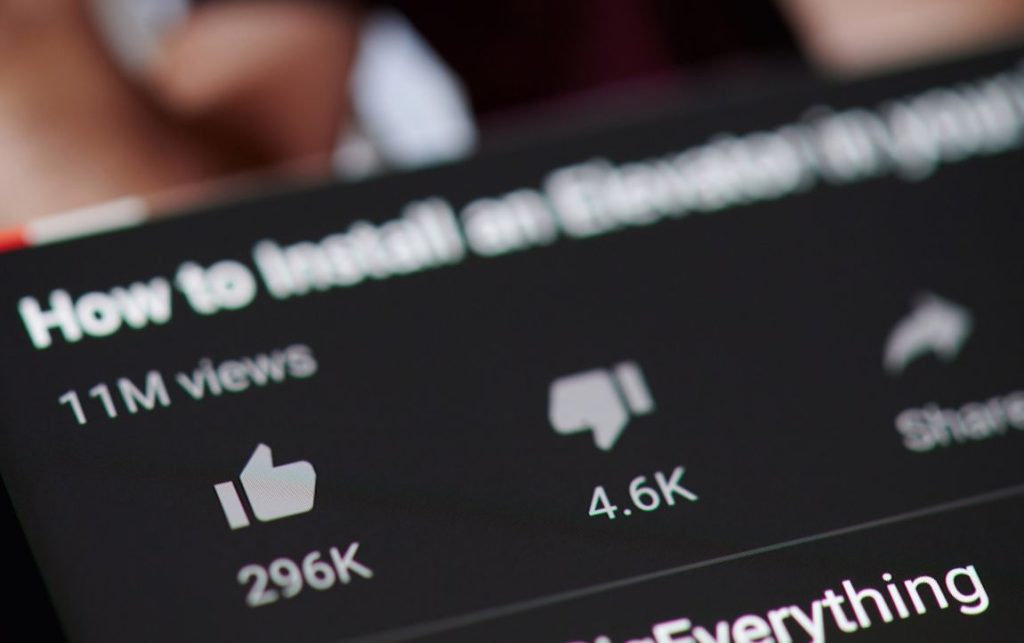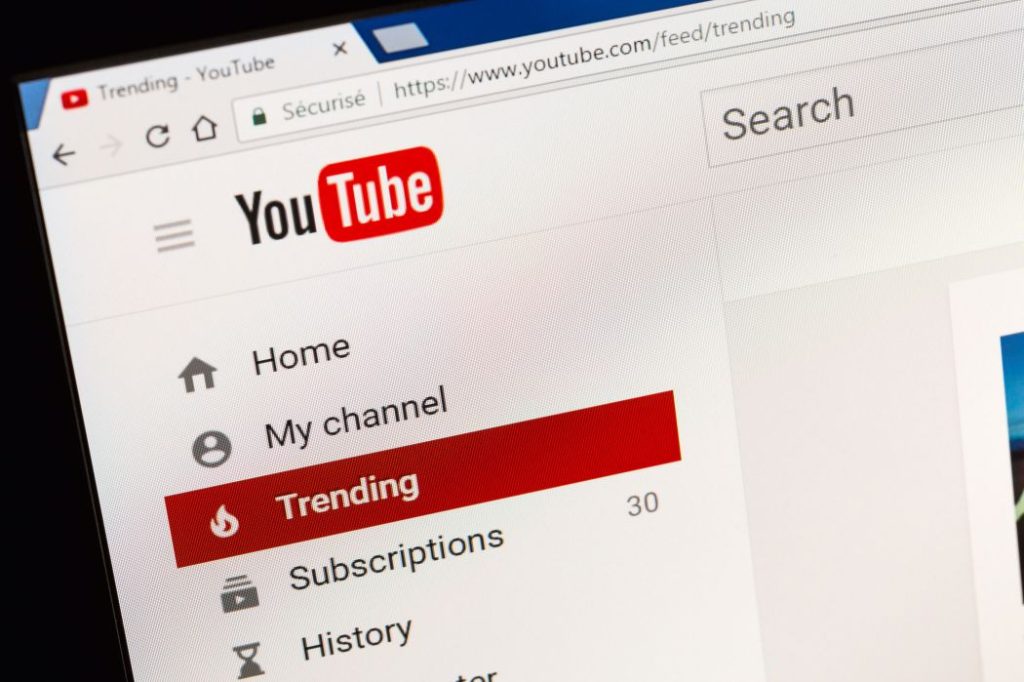Have you ever wondered why just about every YouTuber seems to ask you to ‘hit that like button?’
Although it’s kind of silly to hear it over and over again – and you probably don’t need to be reminded that the like button exists, it still plays an important role, both for creators as well as viewers.
However, the reasons why YouTube creators ask for likes go far beyond what most people realize.
So, in this article, I’ll be covering why YouTubers ask for likes, so you can have a better understanding on what actually happens when you smash that like button.
1. Liking Gives The Video A Boost In The Algorithm

This is the obvious one, so let’s get it out of the way first.
YouTube uses an incredibly advanced algorithm to determine how far a video should be pushed out to other people, and what type of people the video is likely to appeal to.
In order to do this, YouTube collects a large amount of data on how engaging certain videos are, who is likely to engage with them, and just as importantly, who isn’t.
One of these engagement signals that YouTube uses is the like button.
If you like a video, you are signaling to the YouTube algorithm that you enjoyed it, and you want to see more content like it.
You’re also telling them that other people that are just like you may enjoy it as well.
This not only helps tailor the suggested videos you see to be more relevant, but helps the right videos reach the right people elsewhere as well.
Long story short, increased engagement on videos – likes being one engagement factor, directly correlates with higher views, higher rankings on the YouTube search results pages, and showing up more frequently as a suggested video to watch.
2. Liking A Video Makes You More Likely To Do Other Things For Them Later
Here’s where things get a little more interesting!
Did you know that one of the oldest sales tactics in the book, is to get potential customers making small agreements or commitments first?
Psychologically speaking, if someone asks you to do something small and you do it, you are more likely to also agree to do larger things for them later.
For example, if a YouTuber asks you to like a video early on, you are also more likely to listen when they ask you to subscribe later.
Or watch the next video they suggest.
Or visit the link in their description.
Or buy their product.
Regardless of the action you’re being asked to take, the smart marketers on YouTube know that you’re more likely to take that action if you’ve already done something for them once – even if you don’t consciously realize it.
Psychology sure is interesting, isn’t it?
3. It Causes You To Acknowledge That You Like The Content
Speaking of psychology, this one is sort of similar.
When a creator asks you to like their video and you make the decision to doing it, you are acknowledging – even unconsciously, that you do indeed enjoy the video.
This acknowledgement – even if you don’t consciously think it, makes a big difference.
If they pop up again in the future, you are automatically more likely to click on their video, or choose theirs over someone else’s in the search results.
You are also more prone to enjoy future content you watch of theirs, because you have already acknowledged that they’ve produced content you’ve enjoyed in the past!
Fun Fact: Because a creator is more likely to be shown to you after you’ve liked one of their videos, they will pop up on YouTube more frequently. The mere-exposure effect tells us that you are more likely to genuinely like someone, just because you see them more and are more familiar with them. Kind of neat!
4. It May Help The Video Get Pushed Out To More Subscribers

This one’s technically another algorithm boost, but it’s important in a different way.
If you’re subscribed to someone and they’ve just released a new video, then their video is currently in a very key time, that can determine its odds of success.
Shortly after a video is released, it is only pushed to a handful of the creator’s subscribers.
YouTube will then track key metrics about the video’s performance, such as how many people click-through to watch it, how much of the video that they watch, and of course, any engagement signals like likes, dislikes, and comments.
Based on the video’s performance, YouTube will gauge whether or not to push out to more subscribers via bell notifications and browse features (like the YouTube homepage.)
So, by asking for likes in the video, the creator will hopefully see more engagement early on – ensuring a larger percentage of their subscriber base is actually made aware about the new video being published.
5. It Offers Social Proof
Finally, likes offer social proof that a video was enjoyed by others.
This is primarily to the benefit of the viewer, and not to the creator. Still, it plays an important role in the video’s success.
If a video has a high number of likes, two things happen.
First, it shows people that just clicked on the video that it’s actually worth watching. Watch time is an even more important metrics than likes are – if people click on a video and immediately click away, this is a very bad signal to YouTube, and shows that they should suppress the video to avoid disappointing others.
Secondly however, you are psychologically more compelled to like a video if lots of other people have also made the decision to like it.
So, this helps the creator in all the other ways mentioned in this article already.
Fun Fact: Dislikes Can Help Too!
So far, we’ve covered many of the benefits that creators receive every time you hit that like button.
But did you know that dislikes can help them too?
Other than showing them when their content is not being well-received, dislikes can actually help videos in the algorithm, just like a like can!
This is because dislikes also act as an engagement signal, which YouTube takes note of.
That being said, while likes and dislikes are both equally treated as engagement, videos that are disliked also tend to have other issues that hurt performance – such as a lower watch time for example.
Still, with all else being equal, dislikes do not necessarily hurt creators and in fact, can actually help them!
To learn more about the effect of dislikes on YouTube click here!
Conclusion
Because likes offer so many benefits to creators, it’s unlikely that they’ll stop asking for them anytime soon.
YouTubers ultimately want to receive as many views to their videos as possible, and likes help them achieve that. So, it’s certainly appreciated when you remember to press the like button.
I hope that this article has answered your questions, and shown you just how important likes can be to a video’s perfromance.
If you have any other questions about YouTube, ask them below and I’ll be happy to help.
Wishing you the best,
– James McAllister
